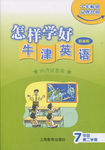题目内容
After the first World War, a small group of veterans (老兵) returned to their village in Britain. Most of them managed to get along fairly well, but one—Francis Blustering, who had been wounded and who never recovered his strength— was unable to work like others. In time he became very poor. Yet he was too proud to accept anything from the people in the village.
Once, these veterans held a reunion dinner in the home of Jules Grandin, who had made a good deal of money. Grandin produced a curiosity(珍玩)—a large old gold coin. Each man examined it with interest as it passed around the long table. All, however, had drunk wine freely and the room was full of noisy talk, so that the gold piece was soon forgotten. Later, when Grandin remembered it and asked for it, the coin was missing.
One of them suggested everyone be searched, to which all agreed, except Blustering. “You refuse, then?” asked Grandin. Blustering said with a red face, “Yes, I cannot allow it.”
One by one, the others turned out their pockets. When the coin failed to appear, attention was focused on poor Blustering. Under the pitying stares of his friends, he walked out and returned to his home.
A few years later, Grandin made his house repaired. A workman found the gold coin, buried in dirt between planks (木板) of the floor. Hurrying to Blustering’s home, Grandin apologized to him.
“But why didn’t you allow yourself be searched?”
“Because I was a thief,” Blustering said brokenly. “For weeks we had not had enough to eat and my pockets were full of food that I had taken from the table to carry home to my wife and hungry children.”
46Francis Blustering lived a poor life because _____________.
A.he was badly wounded in the battle
B.he was unable to work like ordinary people
C.he was too proud to get on well with other people
D.he was waiting for his chance
47The coin was missing because _____________.
A. all the friends were drunk B. the room was too noisy
C. they were too excited to pay attention to it D. Blustering hid it in a secret place
48. When Blustering turned red and refused to be searched, all people thought _____________.
A. he was really a poor fellow
B. he must have stolen the gold coin
C. the coin must be hidden somewhere in the room
D. poor Blustering had hidden some food in his pockets
49. What can we learn from the story?
A. Think twice before you make a judgment.
B. Blustering is a poor father and husband.
C. Blustering would rather live alone than be considered a thief.
D. Blustering is an example we should learn from.
BCBA

 怎样学好牛津英语系列答案
怎样学好牛津英语系列答案After the long journey, the three of them went back home, _________.
| A.hungry and tiredly | B.hungry and tired |
| C.hungrily and tiredly | D.hungrily and tired |
Lucy complained to her father about her hard life. She wanted to 36 because she didn’t know how to______37___ her problems. She felt tired of fighting and fi ghting. Once one ___38____ had been solved, another came.
ghting. Once one ___38____ had been solved, another came.
Her father, a cook, took her into the ___39____. He poured water into three pans. After the water ___40____, in the first pan he put some carrots, the second some eggs, and in the __41____ some coffee. He waited without any 42 .
The girl closed her mouth and waited, 43 by what her father was doing. After about twenty minutes, her father 44 the stove and took out the carrots and the eggs. Then the coffee was ____45___ into a cup.
Turning back to his daughter, he asked, “what do you 46 ?”
“Carrots, eggs, and coffee,” she answered.
Her father suggested she 47 the carrots. She did, and felt the carrots were 48 . Then he asked her to take the eggs and 49 them. After peeling(剥)them, she felt that the eggs were hard. Lastly, he asked her t o smell the __50____. She asked impatiently , “What’s the meaning of this, father?” He explained that 51 had felt the same misfortune to be put into the __52___ water, but had reacted 53 . The strong and hard carrots became soft and weak after a while in the boiling water. The easily ___54___eggs became hard after being cooked. Coffee was very unique --- it could change water.
o smell the __50____. She asked impatiently , “What’s the meaning of this, father?” He explained that 51 had felt the same misfortune to be put into the __52___ water, but had reacted 53 . The strong and hard carrots became soft and weak after a while in the boiling water. The easily ___54___eggs became hard after being cooked. Coffee was very unique --- it could change water.
“ 55 are you? ”asked her father. “When the difficulty knocks your door, what is your reaction? Are you carrots, eggs, or coffee?”
| 【小题1】 |
|
| 【小题2】 |
|
| 【小题3】 |
|
| 【小题4】 |
|
| 【小题5】 |
|
| 【小题6】 |
|
| 【小题7】 |
|
| 【小题8】 |
|
| 【小题9】 |
|
| 【小题10】 |
|
| 【小题11】 |
|
| 【小题12】 |
|
| A.bad | B.hard | C.soft | D.gentle |
| 【小题14】 |
|
| A.coffee | B.carrot | C.eggs | D.water |
| 【小题16】 |
|
| 【小题17】 |
|
| 【小题18】 |
|
| 【小题19】 |
|
| 【小题20】 |
|

 up
up  down
down